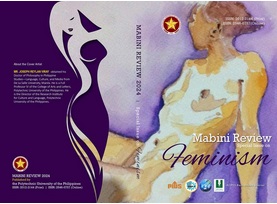Investigating Linguistic Sexismin Popular Ilokano Songs
DOI:
https://doi.org/10.70922/19fgvd88Keywords:
linguistic sexism, Ilokano songs, feminist stylistics, gender-neutral language, discourse analysisAbstract
This study investigates linguistic sexism within the lyrics of ten popular Ilokano songs using Sarah Mills’ feminist stylistics framework. Analysis focused on both word-level and discourse-level elements, exploring how gender roles and biases are embedded in song lyrics. Despite the pervasive presence of gendered language in many cultures, this research reveals that the selected Ilokano songs largely employ gender-neutral language and portray both male and female characters without obvious bias. The absence of gendered generic words and balanced descriptions of characters challenge traditional views on linguistic sexism in Ilokano, a language spoken by millions in the Philippines and globally. These findings contribute to broader discussions on language and gender, suggesting that linguistic practices in Ilokano songs may reflect evolving societal norms around gender equality.
Downloads
References
Downloads
Published
Issue
Section
License
Copyright (c) 2024 Salirick S. Andres (Author)

This work is licensed under a Creative Commons Attribution-NonCommercial 4.0 International License.
Articles published in the MABINI REVIEW will be Open-Access articles distributed under the terms and conditions of the Creative Commons Attribution-Noncommercial 4.0 International (CC BY-NC 4.0). This allows for immediate free access to the work and permits any user to read, download, copy, distribute, print, search, or link to the full texts of articles, crawl them for indexing, pass them as data to software, or use them for any other lawful purpose.


